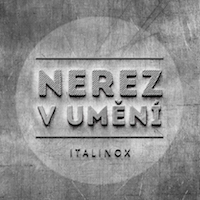Another literature
The literary genres seem the Russian dolls, matrëška; you take one from another and they are all literature, like the dolls, similar but different. Actually they correspond to some aspects of how we see the life (comedy and tragedy, for example), certainly the way we tell a story, about others or ourselves, has an influence of them. I think about the samizdat in that context, because it was not only a medium phenomenon. All that writers, when writing for this kind of media, had to think a new way to write, even if it were to put their writings in small pieces. One digression (excuse me): we can see that everything which was created by men, or everything that is not nature, some day has already passed by their imagination, men are imaginative before being creative; if we see carefully, the first “world” that we live here in this world, as a child, is exactly a “world” of imagination (a childhood education based on imagination exposure can do a lot to a creative grown-up), we imagine then we create, after this, we can return into imagination and so on. The samizdat was created to feed the imagination of some people who had their reality reduced by a political system. I am very curious about it, most on Czech samizdat (different than Russian or Poland ones), because it was from Ivan Klíma and Václav Havel which I had my first contact with samizdat.
The samizdat has created a kind of text that is similar to every gender we know (either fiction or nonfiction), nevertheless different to all them. I mean the text was especially written for it. In general they seem to have more strength than normal, a short story of Klíma is not only a short story like we know, the Havel’s The Power of the Powerless can not be called a simple political speech or essay; these texts did not waste words, a word written for samizdat text had so much strength, because when for writing you do not have freedom or space to write the text size as you want, you must chose the word with such careful that the text become very strong. The samizdat is an amazing school for our times of web texts, ironically the word means “self-published”, something that is possible to do by anyone in these web times. As someone who writes, of course my interest about it has to do with literature, but not only. It has to do with imagination.
Remember that digression above. We are immersed in imagination, we need it. And if we see, without having a reality that we cannot apprehend or smaller than we are used to have, our imagination becomes so poor that we cannot see the way forward. In that time of samizdat, the people around it, I mean the readers, the writers, the copyists, all they needed to know the exact reality, or what to do in that reality, and for this reason they needed to improve their imagination to be able to do their self-analysis and try to continue to think clearly. The literature works in similarity and difference with reality, and if it is a final process of imagining or thinking (and more, living), it can give us a way to think in our lives, a way forward that we can see or, at least, to imagine. It was exactly what the samizdat literature did in that time. Then, the samizdat literature is a proof of how much we need the imagination (or to imagine) to keep on living.
*****
To learn about samizdat: http://libpro.cts.cuni.cz/EN/index_en.html






